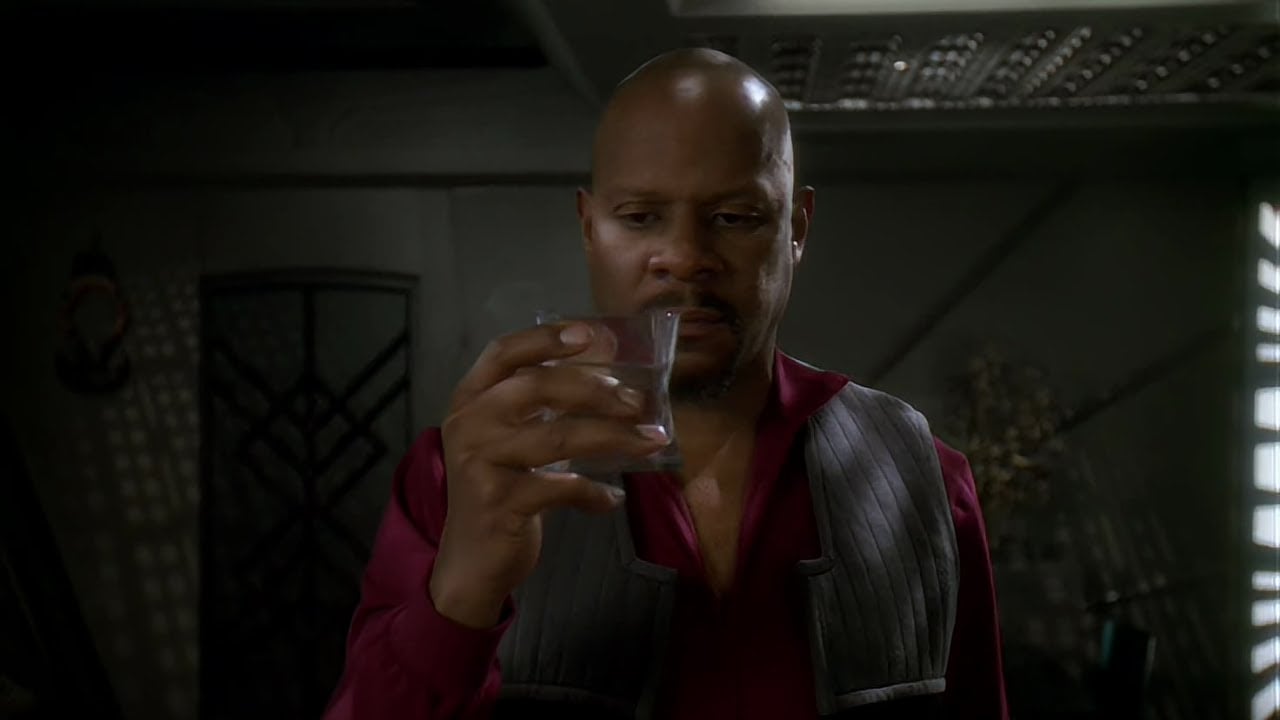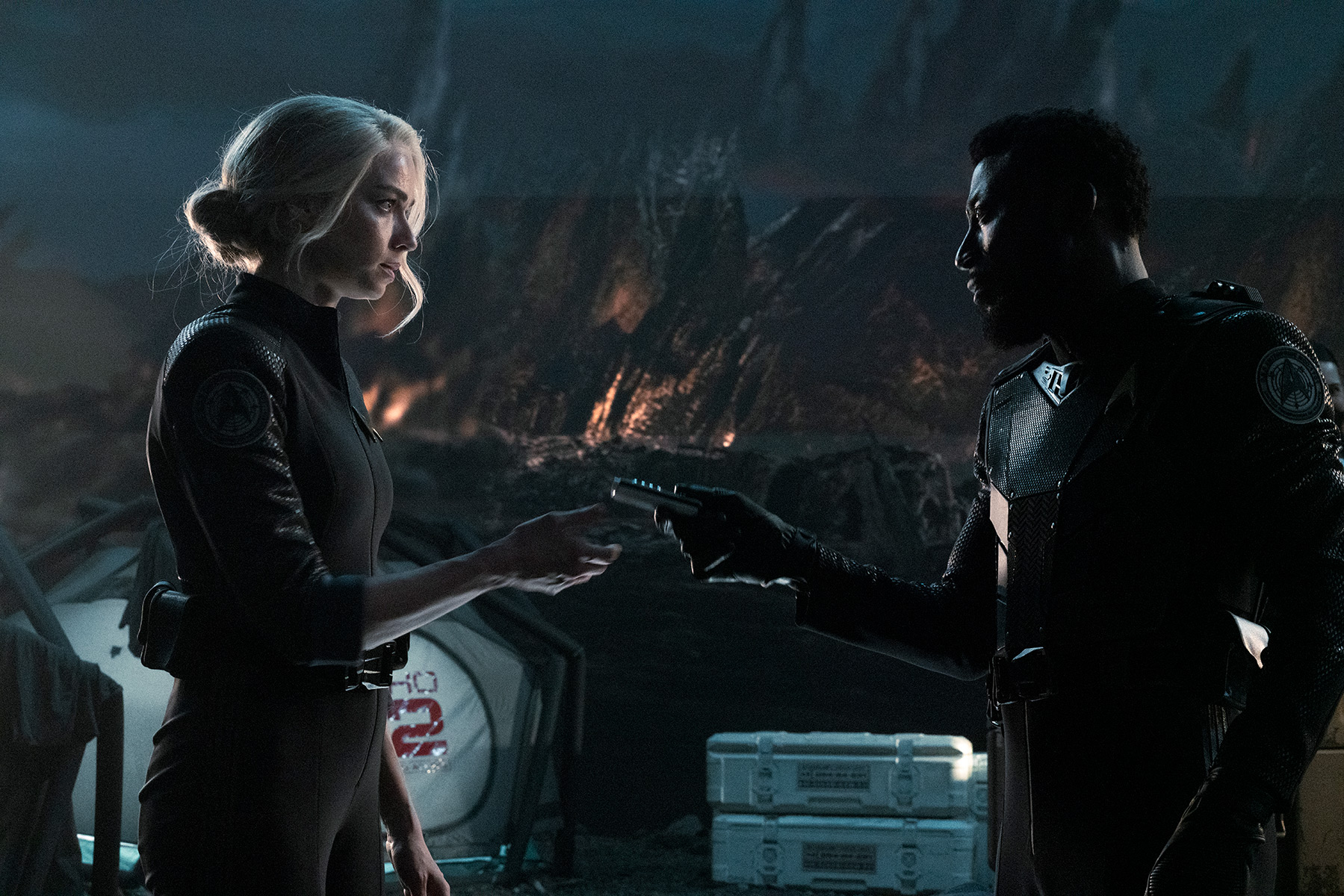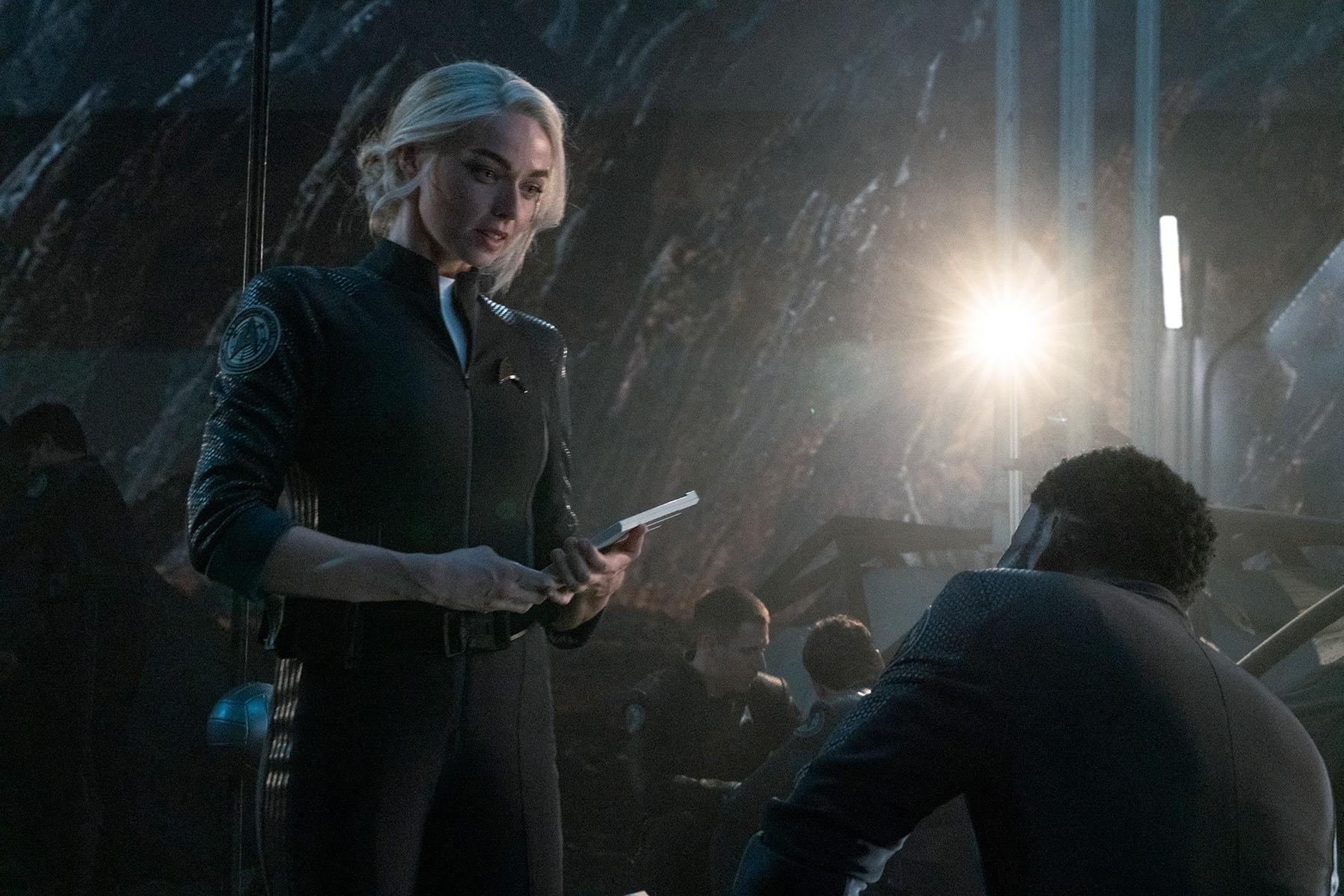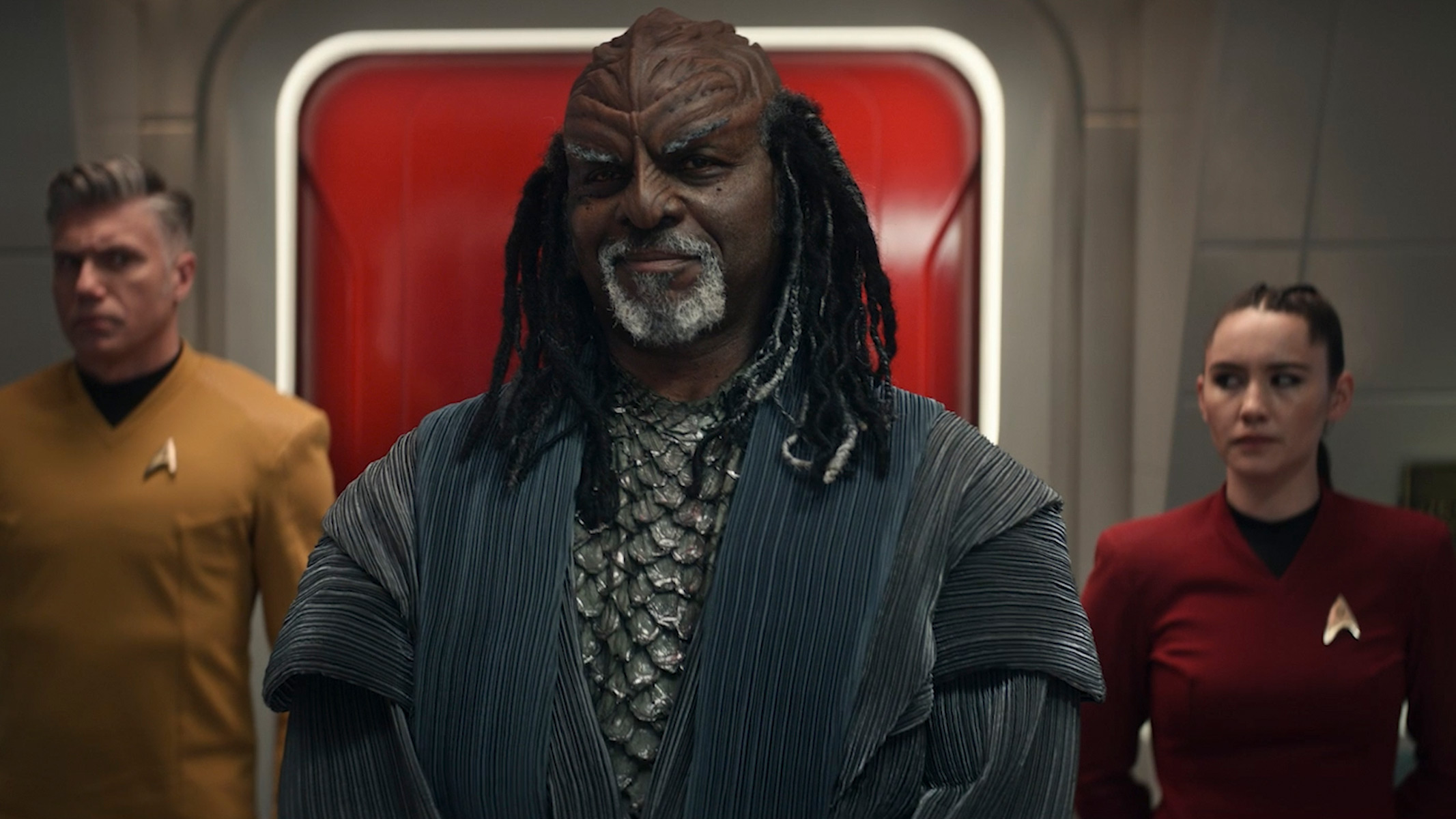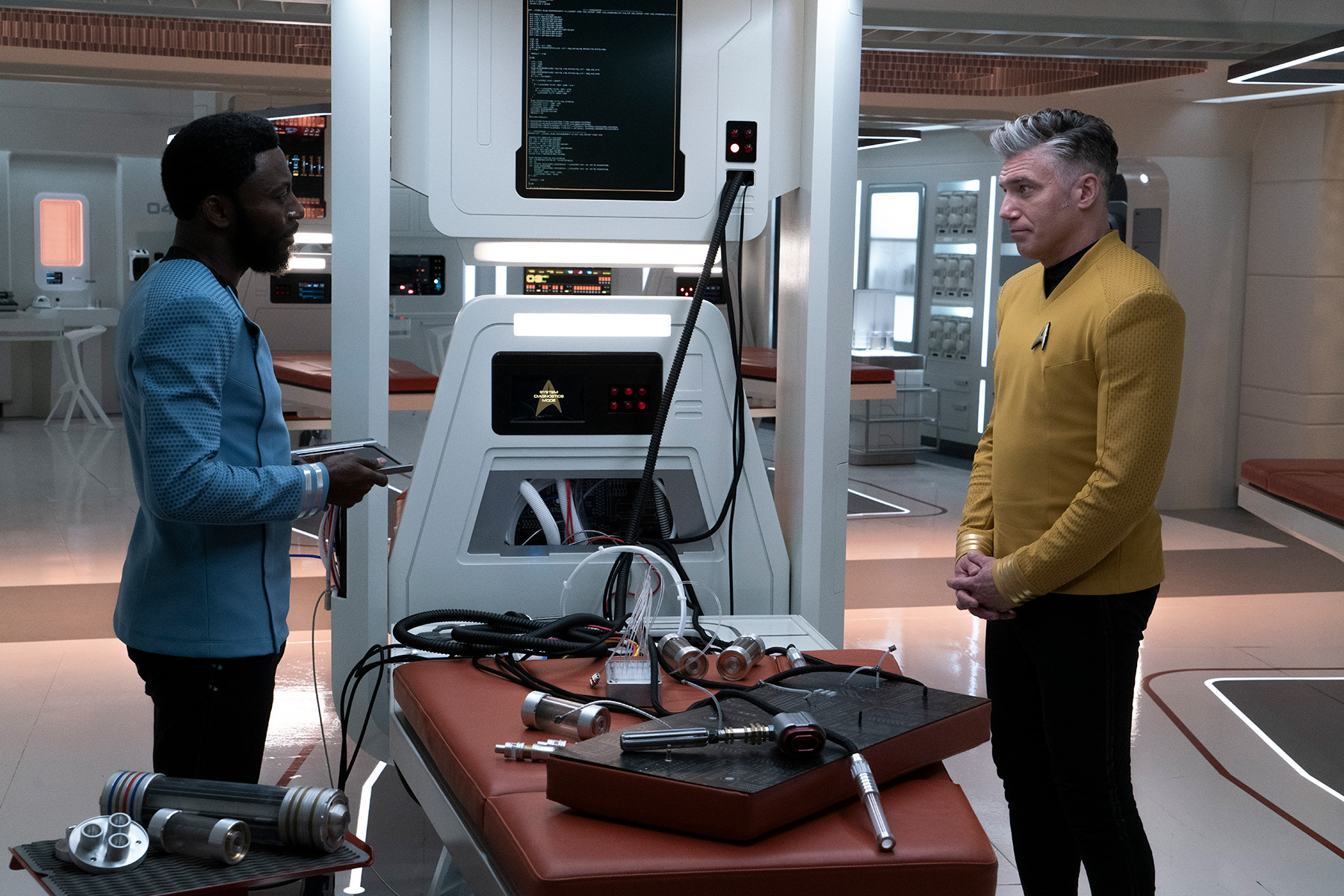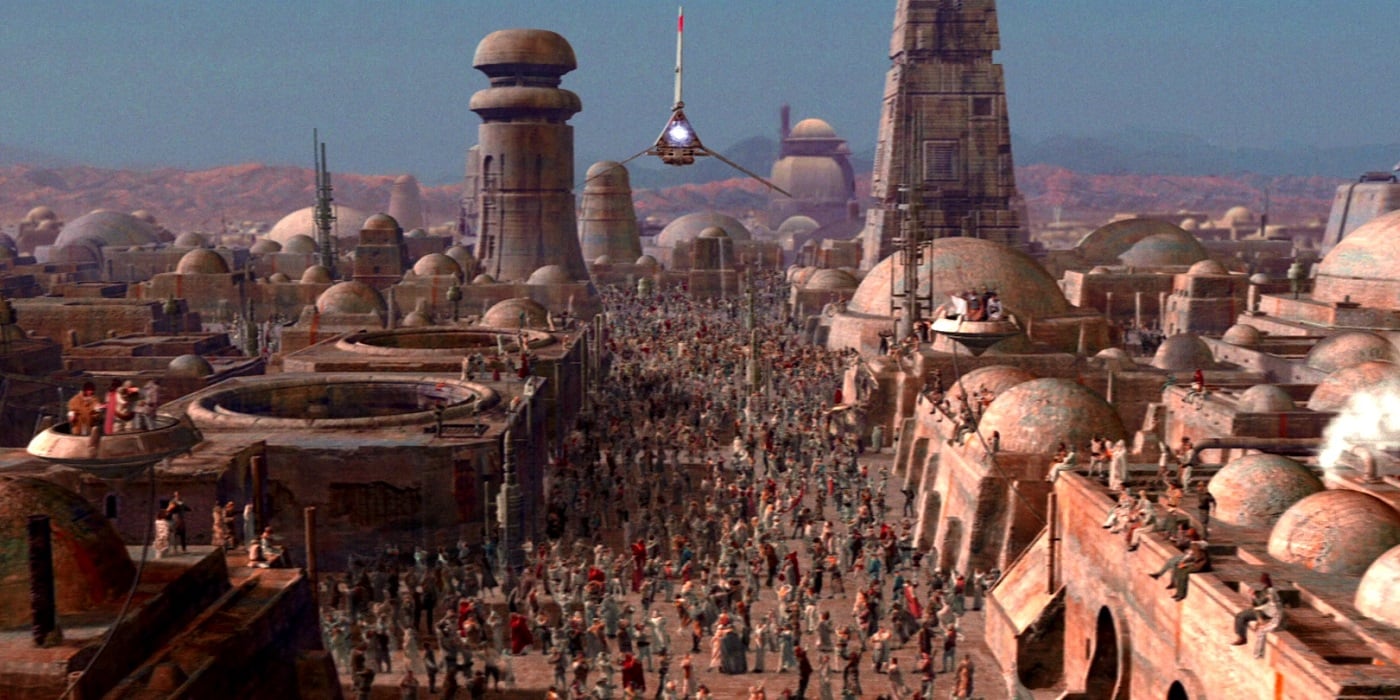‘Star Trek: Strange New Worlds’ Finds Its Darkest Chapter in “Under the Cloak of War”
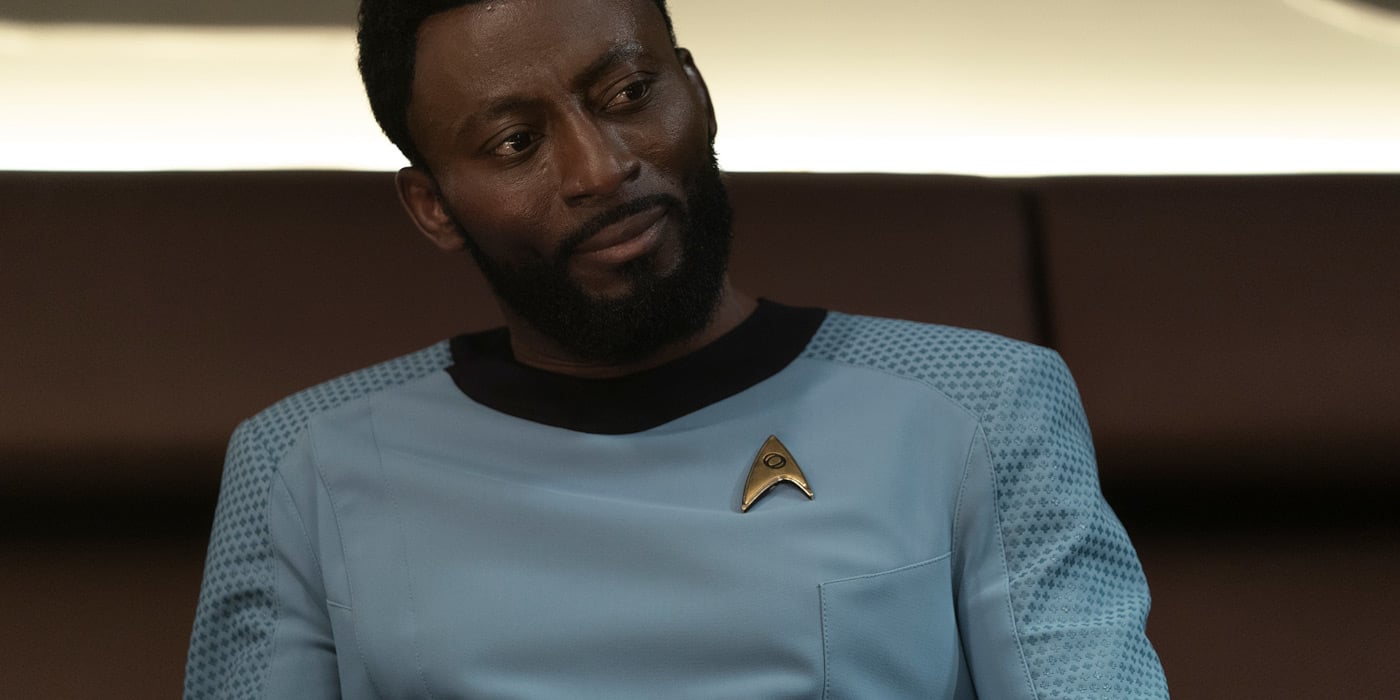
In between a screwball comedy and an all-out musical, Star Trek: Strange New Worlds finds its moral gray area and it’s dark as hell.
If you call Strange New Worlds “feel-good television” that would not be an unfair assessment. After all, it’s a show where the heroes usually win and the imperiled usually survive. It’s the show with space pirates, body swapping, crossover episodes, and, soon enough, Trek‘s first-ever musical episode.
However, SNW does have the capacity to be both serious and a serious bummer. Whenever the Gorn turn up people die, for example. And just a few episodes ago, a perfectly nice alt-universe James Kirk got murdered by a time-traveling Romulan.
Up until now, the darkest SNW moment involved the slow torture of a child. But “Under the Cloak of War” takes us someplace Star Trek rarely ever goes–war.
Enterprise entertains Dak’Rah, the Federation’s sole Klingon ambassador. Dak’Rah also happens to be the Butcher of J’gal: the Klingon general who killed his own men and got away during what wound up being the last gasp of the Klingon War.
Through flashbacks, we learn both Chapel and M’Benga were also at J’Gal. And in fact, it was M’Benga and not Dak’Rah who butchered all those Klingon generals. “Under the Cloak of War” is an adventure in post-traumatic stress that ends in one final casualty of war. It’s also the most challenging episode of SNW so far.
But does it work?
Under the Pale Moonlight of War
Traditionally speaking, Star Trek very rarely does “bad” endings. Seldom do our heroes take the immoral path and get away with it. The most obvious exception is the Deep Space Nine episode “In The Pale Moonlight” in which Captain Sisko tricks the Romulans into allying with the Federation during the Dominion War.
But there’s an important difference between “In the Pale Moonlight” and “Under the Cloak of War”. You can debate the morality of both, but it’s a lot easier to justify Sisko’s actions. Sisko lies to the Romulans to eventually end the war. M’Benga kills even after the war is over. And then Chapel outright lies for him.
Yes, Star Trek: Strange New Worlds is fun a lot of the time. But the goal of its second season isn’t just to have more fun, it’s to take more risks. And revealing that your chief medical officer is a brutal murderer who still butchers people to death is most definitely a risk.
But I think (and not to tip my hand too early here) it does work.
To Boldly Review “Under the Cloak of War”
There’s a very smart conflict in this episode and it’s not the one between M’Benga and Dak’Rah. It’s the conflict between those who serve and those who don’t. Pike, Una, Spock, and Uhura were spared the trauma of the Klingon War. Conversely M’Benga, Chapel, and Ortegas all have real scars from it. Dak’Rah’s appearance on Enterprise reveals a silent tension between our usually affable crew which is always there. The way they view times of peace is fundamentally different.
Dak’Rah is an ambassador despite being known as the Butcher of J’gal for one reason: he is useful to the Federation. It’s not just that Ra brokers peace, it’s that he speaks in absolute terms when it comes to the Klingon War. The Klingons are the baddies and the Federation is the goodies.
Does Dak’Rah believe what he says? Maybe! But what makes his appearance so perfectly antagonistic for the entire Enterprise crew is that there’s more to his story than what he says. Those who were not part of the war want to accept Dak’Rah at face value because he represents the idea that the war is over. But those who served reject him both for the acts they believe he committed and because, for them, the war isn’t just over. And because his simple statements don’t pass muster.
Ortegas gives it voice first. Dak’Rah is lying. She’s wrong about what she thinks the lie is, but she is right that his motivations are more complex than what he presents. And her standing up at the captain’s table serves as a great tipping point so the rest of the story can unravel.
Nurse Chapel and Spock
Star Trek: Strange New Worlds has this very clever deception going on in season 2. They want the audience to believe that the reason Spock and Chapel won’t stay together is because of Spock. But I think “Under the Cloak of War” makes a strong argument that the doomed nature of that romance is about both partners.
In season one, we learn that Chapel is unwilling to be in a long-term relationship. And it seems at that point like she’s just a free spirit who does not want to be tied down. But “Under the Cloak of War” suggests that part of her difficulty with commitment relates to the trauma of war.
Through flashbacks, we learn that Chapel is thrown into the fire. She’s making impossible life-and-death decisions within moments of arriving at J’gal. She’s holding literal hearts in her hand, saving a life only to have it sacrificed on the altar of war only days later. For every life saved, an incalculable number is lost. She and M’Benga wipe someone out of the transporter’s pattern buffer because that death means more live.
And when M’Benga goes off to kill as many Klingons as he can, Chapel doesn’t beg him to stop–she tells him to go and kill as much as he has to. Her job is to save life, to protect life and yet she chooses death on that battlefield.
Spock will never understand that. He can try. His cool logic is helpful. But this trauma Chapel has is something she will never shake and only M’Benga can truly understand that.
M’Benga and Dak’Rah
Star Trek, 99% of the time, is about how humans can and will be peaceful more often than not. Biases will be overcome. War will end. Famine will be obliterated. But that is a fairy tale. It’s one we need to hear so we have something to strive for, but it’s not the truth.
Dak’Rah represents why the simplicity Trek presents sometimes doesn’t work. Viewing Klingons as mindless killers may make for a more united Federation of Planets in the short term, but that’s a house built on sand.
More than that, Dak’Rah is the worst person to preach the message of peace. Yes, he seeks to reform. But he does so by lying. He lies when he says he killed his own men. Dak’Rah did, however, say to kill anyone (civilians and children, too) who isn’t Klingon. Many innocents died because of that. And he’s been running from that without truly facing the consequences of his actions ever since.
M’Benga’s argument is that Dak’Rah’s path ultimately leads him to face consequences. He lied until those lies brought him to the real Butcher of J’gal: M’Benga. And the more Dak’Rah tries to make M’Benga embrace the lie, the more malignant the lie becomes. So long as Dak’Rah lives, the truth will come out. And that truth will topple any good he ever did. That’s the only thing M’Benga and Dak’Rah agree on.
M’Benga kills Dak’Rah and, to an extent, the truth dies with him. Or at least the relevance of his truth dies. Someday the truth about M’Benga may come out. And at that point, Dak’Rah’s lies won’t matter as much in the public eye. Dak’Rah won’t currently be brokering any peace that would suddenly break because his guilt is revealed.
“Under the Cloak of War” and the Smaller Lie
In the end, M’Benga is a lot like Sisko. He believes that it is incumbent upon him to keep certain truths. He takes a kind of moral authority in doling out what he sees as justice against Dak’Rah. But it’s more complex than just being happy that Dak’Rah is dead. M’Benga truly believes that adding one more red line in his book is the lesser evil.
And maybe he’s right. Chapel certainly seems to think so. She, and we, don’t quite see for sure who starts the fight that ends in Dak’Rah’s death. But Chapel speaks as though she saw it all. Did she do it out of duty to M’Benga? Does she believe Dak’Rah deserves death? She may also see his death as the least possible evil.
The ambiguity is what makes the story work. Chapel, M’Benga, and Ortegas are all, like the medbay’s biobed, broken. No matter how many times they are fixed, they will break down again. So there’s no moral authority here. No guarantee that they did the right thing. Pike can’t judge them or even understand them. And neither can we.
“Under the Cloak of War” sees writer Davy Perez craft something truly uneasy. I don’t imagine people will revisit this episode much. It’s a little too true. Both Babs Olusanmokun and Jess Bush leave it all on the proverbial stage. Career-defining performances. Altogether the story serves as proof that sometimes Star Trek can and must tell stories that hurt a little. Not everything that heals is painless.
5/5 stars

